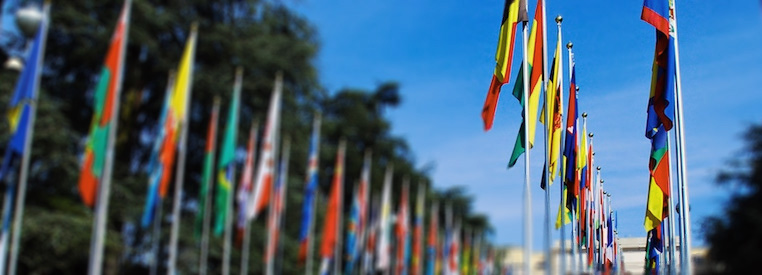Nepal| UN human rights office looking into Nepal violence
From the UN News Centre:
In the wake of clashes following a recent eviction drive in eastern Nepal, the United Nations human rights office in the Asian nation today called on the Government and Maoists to take a step back from further violence.
The Office for the High Commissioner for Human Rights in Nepal (OHCHR-Nepal) said in a press release that it is looking into excessive use of force by security personnel during the drive initiated by the District Forest Office in Dudhejhari forest area in Kailali district.
According to reports, three people died and security forces were attacked by those resisting eviction with traditional weapons, including axes, with a police officer killed.
Over 40 civilians and nine police officers sustained injuries in the incident. [...]
More here.
Committee Against Torture Opens 43rd Session in Geneva
Opening its forty-third session in Geneva on 2 November, the Committee Against Torture was briefed by a representative of the Secretary-General, Ibrahim Salama, Chief of the Human Rights and Treaty Branch of the Office of the United Nations High Commissioner for Human Rights (OHCHR). Read more
Mexico: UN reports attacks on human rights defenders
A recent UN report says the Office of the UN High Commissioner for Human Rights (OHCHR) found over 120 cases of aggression against human rights defenders in Mexico, between January 2006 and August 2009. The 50-page report, “Defender los derechos humanos: entre el compromiso y el riesgo” (Defending Human Rights: Caught Between Commitment and Risk), issued by OHCHR-Mexico, closely documents 128 cases, 10 of which resulted in murder, as well as 54 complaints of attacks on human rights promoters around the country. Inter Press Service (IPS) notes that when Mexico was under the Universal Periodic Review of the U.N. Human Rights Council earlier this year, the country was given several recommendations regarding the situation of activists. IPS writes: “Everyone has the right, individually and in association with others, to promote and to strive for the protection and realisation of human rights and fundamental freedoms at the national and international levels,” according to the 1998 U.N. Declaration on the Right and Responsibility of Individuals, Groups and Organs of Society to Promote and Protect Universally Recognised Human Rights and Fundamental Freedoms. Whoever does this may be regarded as a human rights defender. [...] It is essential for the state to adopt the issue of human rights defenders as a priority, and to strengthen an integrated state policy on the issue, said [Alberto Brunori, head of OHCHR-Mexico]. To compile the report, OHCHR staff visited 10 of Mexico’s 32 states and interviewed non-governmental organisations (NGOs), human rights defenders, victims of aggression, authorities and journalists, as well as sending questionnaires to all of these and to state institutions that deal with human rights issues. Noemí Ramírez, head of the Mexican Academy for Human Rights, an NGO, said the situation of human rights defenders is “worrying.” “The government has vilified the work of rights defenders. There has been a serious deterioration in the situation under the present administration,” she told IPS. More here from IPS.
UN human rights chief urges end to death penalty in Iran

UN Photo / Jean-Marc Ferre
Navi Pillay, the UN High Commissioner for Human Rights, has spoken out against the use of the death penalty for juvenile offenders in Iran. Speaking on 13 October, she also voiced serious concern over the death sentences recently handed down to three people for their involvement in the post-election protests that gripped the media’s attention around the world.
According to the news release issued by the Office of the High Commissioner for Human Rights, Behnoud Shojaie, 17, who was executed on Sunday, had been convicted of the murder of another boy in a street fight. Both Pillay and UN special rapporteurs had broached the issue with Iranian authorities to remind them of their legal obligations not to execute juveniles, under the International Covenant on Civil and Political Rights and the Convention on the Rights of the Child, to both of which Iran is a party.
“This latest execution shows there are no guarantees of clemency for juveniles until Iran changes its law and practice to end execution of juvenile offenders once and for all,” the High Commissioner said. “It is the State’s responsibility to stop these executions, not a family’s prerogative.”
With regard to the death sentences issued to three post-election protesters, she noted that, “Under international law, the death penalty can only be applied when very strict conditions are met, for example only in respect of the most serious crimes and only after scrupulously fair trials.”
UN human rights mechanisms are of the view that imposing the death penalty for crimes that do not result in loss of life belies the principles of the International Covenant on Civil and Political Rights.
More here.
